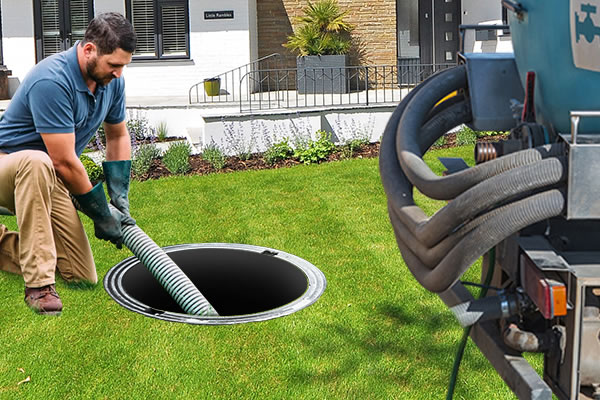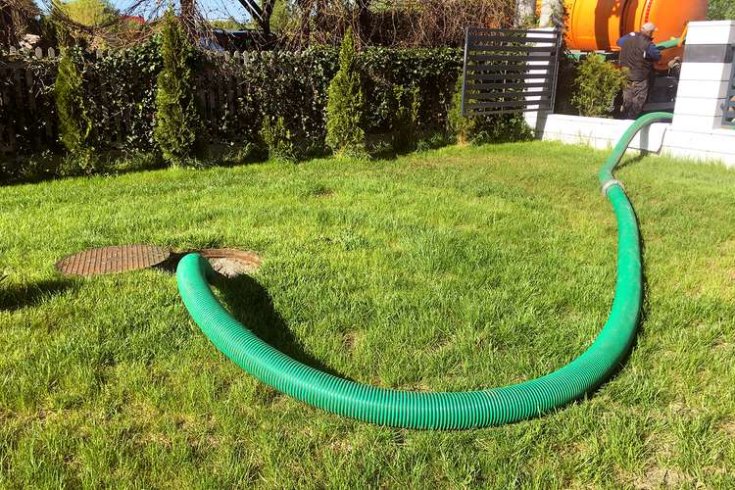
15
Many homeowners don’t give much thought to their toilet paper—until it starts affecting their septic tank system. The type of toilet paper you use can impact the efficiency of your system, affecting everything from how often you need septic tank pumping to the overall lifespan of your tank. Understanding why toilet paper matters can help you avoid costly repairs and ensure your system functions properly.
Before diving into the impact of toilet paper, it's important to understand how a septic tank operates. Wastewater from your home flows into the septic tank, where solids settle at the bottom while liquids flow into the drain field. Bacteria in the tank help break down the waste, but not all materials decompose at the same rate.
Toilet paper that doesn’t break down easily can cause buildup, leading to blockages and increasing the need for septic tank pumping and septic tank cleaning.
Septic-safe toilet paper is designed to dissolve quickly, preventing clogs and excessive sludge accumulation. Standard toilet paper, especially those marketed as ultra-soft or extra-thick, may take longer to break down, putting strain on your septic tank.
If your toilet paper takes too long to break down, solids accumulate faster, requiring more frequent septic tank pumping in Waxhaw, NC. Over time, this increases maintenance costs and the risk of backups. Choosing the right toilet paper helps extend the time between pumpings.
Toilet paper that doesn’t dissolve efficiently can get stuck in pipes, causing slow drainage and potential blockages. This is especially problematic for older septic systems or those that haven’t had proper septic tank cleaning.
Choosing the Right Toilet Paper for Your Septic Tank
Not all toilet paper is created equal. Here are some factors to consider when selecting a septic-friendly option.
Look for "Septic-Safe" Labels: Manufacturers label certain toilet papers as “septic-safe,” meaning they dissolve quickly and won’t contribute to blockages. These are tested for compatibility with septic tank systems.
Perform a Simple Dissolve Test: If you’re unsure whether your current toilet paper is septic-safe, you can perform a simple test.
If the paper breaks apart quickly, it’s likely safe for your septic tank. If it remains intact, consider switching brands.
Avoid Thick, Plush Toilet Paper: Luxury toilet paper brands tend to be thicker and more absorbent, making them slower to break down. While they may feel comfortable, they can cause long-term damage to your septic tank.
Consider Recycled Toilet Paper: Recycled toilet paper is typically less processed, meaning it dissolves more easily and is better for the environment. Many of these options are also labeled as septic-safe.
Beyond choosing the right toilet paper, there are additional steps you can take to maintain your septic tank.
Schedule Regular Septic Tank Pumping – Experts recommend septic tank pumping every 3-5 years, depending on usage. Regular maintenance prevents sludge buildup and system failures.
Invest in Septic Tank Cleaning – Routine septic tank cleaning helps remove stubborn waste that pumping alone may not eliminate.
Be Mindful of What You Flush – Avoid flushing items like wipes, feminine hygiene products, and paper towels, as these do not break down easily.
Ensure Proper Septic Tank Installation – If you’re building a new home or replacing an old system, professional septic tank installation is crucial for efficiency and longevity.
Your choice of toilet paper plays a bigger role in your septic tank health than you might think. By selecting septic-safe toilet paper, you can reduce the need for frequent septic tank pumping, prevent clogs, and extend the life of your system. Combined with regular septic tank cleaning by professionals at Charlotte Septic Pros and proper septic tank installation, these small changes can help keep your system running smoothly.

28
Why Is Sewage Backing Up into My Tub? When wastewater starts rising into your bathtub, it’s more than just unpleasant—it’s…
Read more
22
Can Bacteria Additives Eliminate the Need for Pumping? If you own a home with a septic system, you’ve probably seen…
Read more
12
A single slow drain in your home can feel like a minor inconvenience. Maybe the sink takes a little longer…
Read more
05
Are Slow Drains a Septic Issue or Just a Clog? Slow drains are one of those household problems that start…
Read more
02
What Septic Service Techs See That Homeowners Miss Most homeowners only think about their septic system when something goes wrong.…
Read more
21
Simple Habits That Protect Your Septic System A well-functioning septic system does its job quietly, but the moment something goes…
Read more
14
Pump Now or Pay Later: The Real Cost of Skipping Maintenance A properly functioning septic system is easy to forget…
Read more
11
Why Your Septic System Always Acts Up at the Worst Time Homeowners often feel that septic problems strike at the…
Read more
04
Early Warning Signs Your Septic Tank Needs Pumping For homeowners who rely on a septic system, routine maintenance is not…
Read more
29
Why Does My Septic System Smell Fine One Day and Terrible the Next? If you own a home with a…
Read more